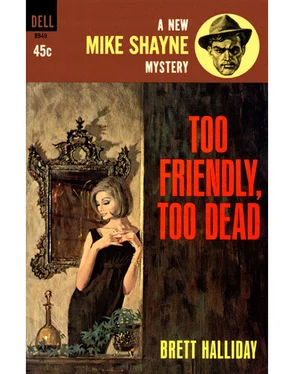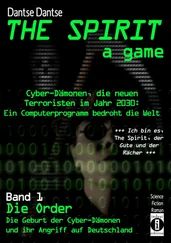Dan Fesperman - The Double Game
Здесь есть возможность читать онлайн «Dan Fesperman - The Double Game» весь текст электронной книги совершенно бесплатно (целиком полную версию без сокращений). В некоторых случаях можно слушать аудио, скачать через торрент в формате fb2 и присутствует краткое содержание. Жанр: Шпионский детектив, на английском языке. Описание произведения, (предисловие) а так же отзывы посетителей доступны на портале библиотеки ЛибКат.
- Название:The Double Game
- Автор:
- Жанр:
- Год:неизвестен
- ISBN:нет данных
- Рейтинг книги:3 / 5. Голосов: 1
-
Избранное:Добавить в избранное
- Отзывы:
-
Ваша оценка:
- 60
- 1
- 2
- 3
- 4
- 5
The Double Game: краткое содержание, описание и аннотация
Предлагаем к чтению аннотацию, описание, краткое содержание или предисловие (зависит от того, что написал сам автор книги «The Double Game»). Если вы не нашли необходимую информацию о книге — напишите в комментариях, мы постараемся отыскать её.
The Double Game — читать онлайн бесплатно полную книгу (весь текст) целиком
Ниже представлен текст книги, разбитый по страницам. Система сохранения места последней прочитанной страницы, позволяет с удобством читать онлайн бесплатно книгу «The Double Game», без необходимости каждый раз заново искать на чём Вы остановились. Поставьте закладку, и сможете в любой момент перейти на страницу, на которой закончили чтение.
Интервал:
Закладка:
The Great Impersonation was probably the most popular, but by the time I tried to read it in the early seventies it was badly dated. I didn’t make it past the first chapter, mostly because the characters kept saying things like “By Jove!” and “Ripping of you, old chap!”
Now, as I flipped through the pages in search of a message, those “By Joves!” kept winking up at me. I found nothing in the text. Then I slid my fingers along the clothbound cover and peered down the spine for any sign of an inserted note. No success there, either. Maybe the courier network had used a book code and sent the key by separate channels. That would explain why Lemaster took it in stride when Szondi kept the book.
Litzi, watching me, shook her head in disapproval.
“You’re out of that now, remember?”
“There’s nothing in here anyway.”
“Give it to your father, then.”
“He’s already got a copy.”
“Sell it on eBay.”
“Maybe we could trade it for dinner. I’m hungry.”
“Stay here. There’s a takeout place down the block.”
After she left I realized I was also craving a beer, but Litzi no longer had a cell phone, so I went in search of refreshment, hoping to make it back before her. I did, but on arrival I was greeted by yet another sealed envelope that someone had shoved beneath the door. So much for the idea that we’d covered our tracks.
Feeling vulnerable again, I set aside the beer and ran downstairs to the desk, where I discovered to my irritation that the clerk’s no-questions policy extended to visitors and would-be thieves.
“No see anyone,” he insisted in broken English, hands in the air like a suspect. When I continued to harangue him for information he went into his small office and shut the door. I hustled back upstairs, hoping to take care of business before the newly bossy Litzi returned. I took the envelope into the bathroom, shut the door for privacy, and slit it open.
The format was familiar enough-single sheet, typewritten, with a torn-out book page pasted below-except the paper wasn’t my stationery, and the typing hadn’t been done on my Royal. The deviations from the pattern made it feel like a rush job. Or maybe somebody new was issuing orders.
“I sense that your interest is waning,” the message began. “This will get you back on track. Think Belgrade 1992.”
Below was a street address in Pest near the Keleti train station, followed by the words, “Visit anytime. You’re expected.”
The reference to Belgrade ‘92 naturally piqued my interest, since that was the point at which my journalistic career ran off the rails, thanks to the denied visa. I expected the book passage to be something about dashed dreams or pouting young men.
It was far more cryptic. The page was from Le Carre’s A Perfect Spy, my favorite of his non-Smiley books. It was the tale of Magnus Pym, a Philby-style mole whose father was a charming con artist. Le Carre supposedly wrote it as a sort of personal exorcism, unloading his emotional baggage over his own dad. In that sense, at least, Magnus was the author’s alter ego. But in another way he was more like me-an only child raised by a single parent, the product of an insular upbringing in which father and son were almost always on the move. The marked excerpt was a mere sixteen words.
Love is whatever you can still betray, he thought. Betrayal can only happen if you love.
I was still trying to figure out what that could possibly have to do with Belgrade ’92 when I heard Litzi come back into the room.
“Bill?” She sounded worried.
“In the toilet. Be right out.”
“You went out for beer?” She’d found the six-pack on the bed.
“Sorry, I was thirsty. Tried to catch you on your way out.”
I folded the message into my pocket, then flushed the toilet and ran water from the tap. When I opened the door I saw that she, too, had picked up some beer.
“You shouldn’t have left. I doubt the desk clerk is very vigilant.”
“You’re probably right about that.”
“What’s wrong?”
“Nothing.”
“Your face doesn’t look like ‘nothing.’ Did something happen?”
“Everything’s fine.”
She watched me a few seconds more. I considered telling her about the message. But it was more personal than the others, and it troubled me for reasons I couldn’t yet explain. The part about love and betrayal might even be referring to her, so for the moment I kept it to myself. If she was still hiding details of her career with the Verfassungsschutz, why couldn’t I hide this? But the main reason was that I didn’t want to have to explain what had happened back in ’92, or, rather, the aftermath, which I’d handled so poorly.
The food was Chinese, and tasty, and the atmosphere grew more relaxed as we stuffed ourselves with dumplings and garlic chicken. By the time we finished, the room smelled of grease and soy sauce, and we’d downed four of the beers.
We watched some Hungarian television on a wavering black-and-white tube, then packed for an early getaway, brushed our teeth, and climbed into bed. There was no question of sex. Each of us was exhausted, worried, and, more to the point, too wary to make a move. Still, when she rolled up against me later in the sag of the narrow bed, I placed a hand on her waist and snuggled closer. It was a start. But toward what?
I awakened hours later, when it was still dark. The words of the message were still tumbling around in my head. I slipped out of bed and stood barefoot by the window, listening to the night for any sound of movement. I took the note from my trousers, unfolded it as quietly as possible, and reread the quote by the light over the bathroom sink.
Whose betrayal, I wondered? And whose love? And how was any of it relevant to the task at hand, or even to Belgrade ’92? If the note had made any sort of demand upon me, ordering me to appear at a certain time, say, or by a certain deadline, I probably would have defiantly ignored it. But by leaving things open-ended-”Visit anytime. You’re expected”-my handler had turned the request into an enticement, a lure, and as I pulled on my trousers I surrendered to its power.
I shut the door behind me with a tiny click. The innkeeper was gone from his darkened post. When I reached the street I took out my map of the city. Trams and subways weren’t running at this hour, but my destination was only about a mile away, so I set out on foot. Every step echoed in the empty streets, and for blocks I stared cautiously into the depths of every shadow. As I eased into a rhythm, my nervousness abated. Clearly I was alone.
The address was a house, a crumbling three-story Hapsburg fortress built of stone, with grand dormers, a spired turret, and a pitched slate roof. I rang the bell, but there was no sound in response, so I knocked loudly, then began counting the seconds beneath my breath. At eleven I heard footfalls on the stairs. The only other sound was the hum of a streetlamp.
Someone was coming, a heavy but uncertain tread, like a man leery of falling. Old, I guessed. A key rattled and clicked. The door opened just enough for an eye to peer out at me from a face full of folds and wrinkles. The door swung free.
With Belgrade as a point of reference, I recognized him right away, even after nineteen years. He looked as grumpy and disagreeable as ever.
“Cage,” he croaked. “Inconvenient as always.”
“The message said anytime.” My voice misted in the autumn chill. “I decided to take you at your word.”
“ I didn’t write that.”
He glanced up and down the street, then motioned me inside.
“You’d better be alone.”
“As far as I know.”
He wore a white silk robe and felt slippers. He didn’t offer a hand in greeting, which was just as well because I wouldn’t have taken it.
Читать дальшеИнтервал:
Закладка:
Похожие книги на «The Double Game»
Представляем Вашему вниманию похожие книги на «The Double Game» списком для выбора. Мы отобрали схожую по названию и смыслу литературу в надежде предоставить читателям больше вариантов отыскать новые, интересные, ещё непрочитанные произведения.
Обсуждение, отзывы о книге «The Double Game» и просто собственные мнения читателей. Оставьте ваши комментарии, напишите, что Вы думаете о произведении, его смысле или главных героях. Укажите что конкретно понравилось, а что нет, и почему Вы так считаете.












